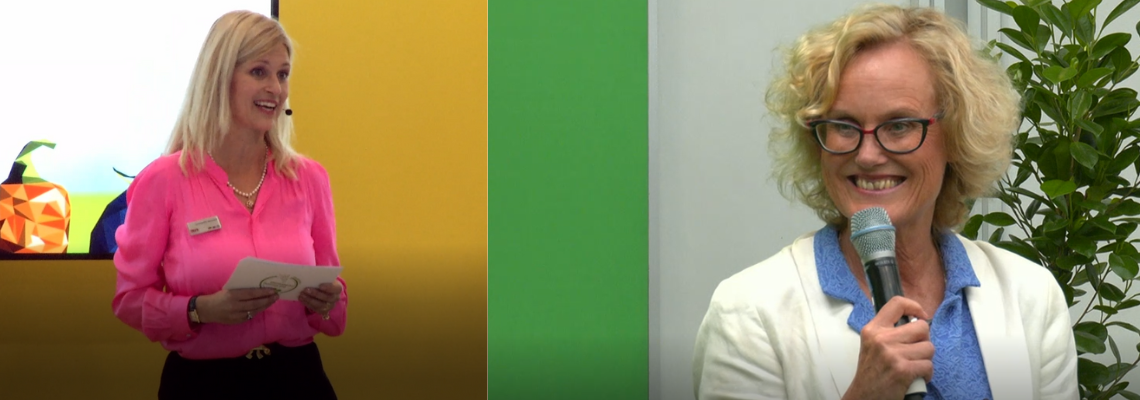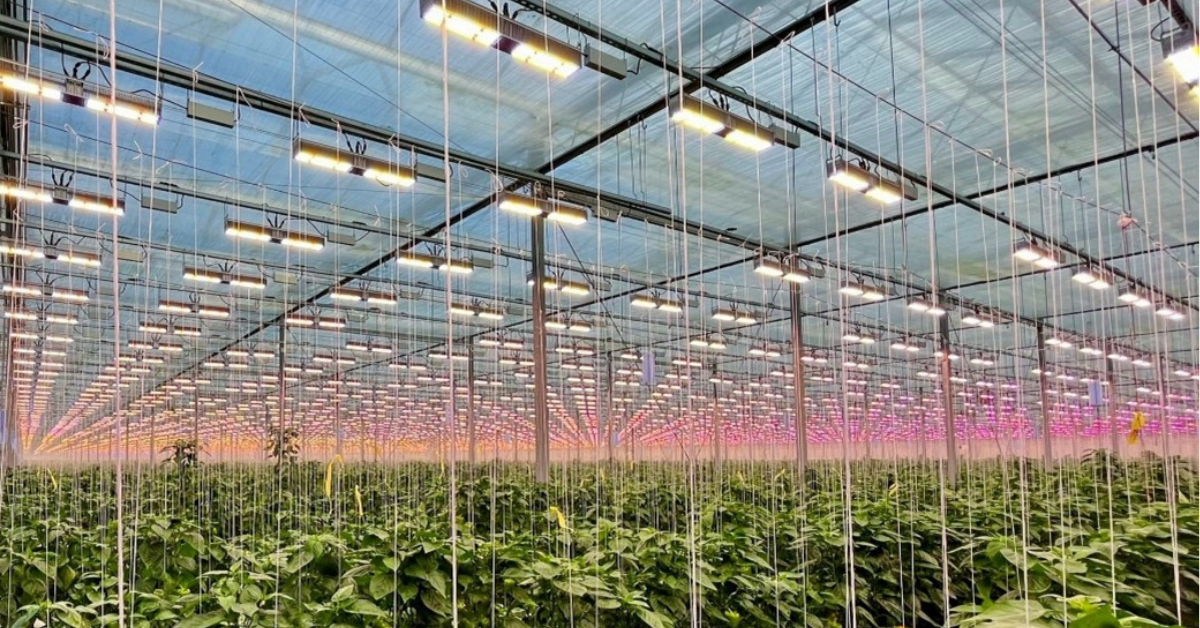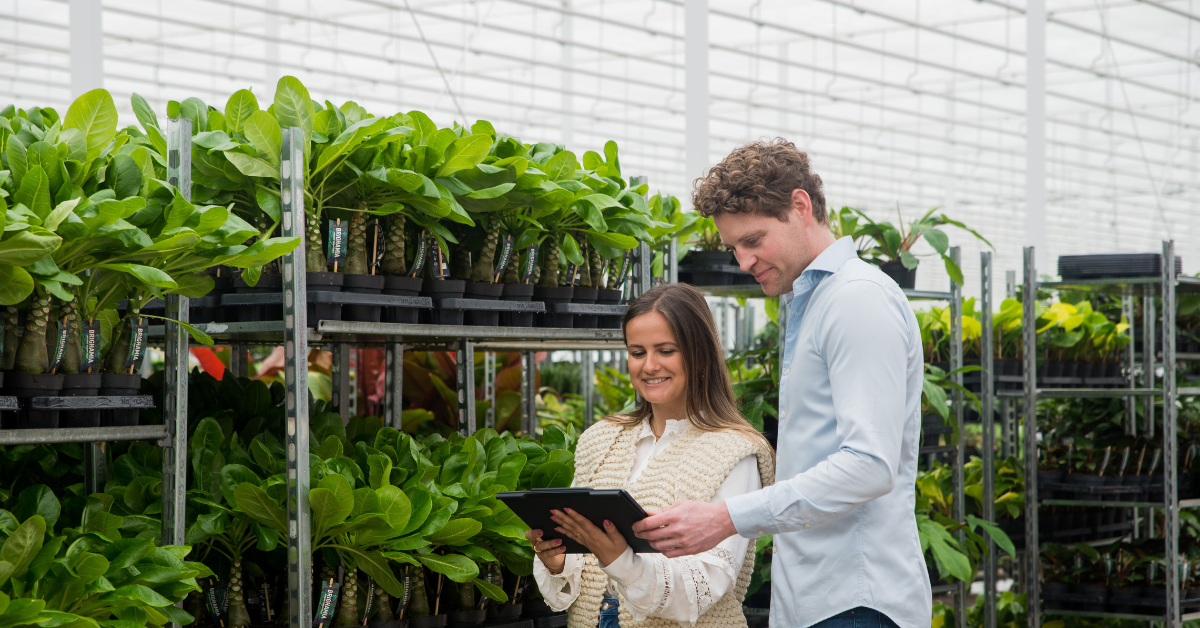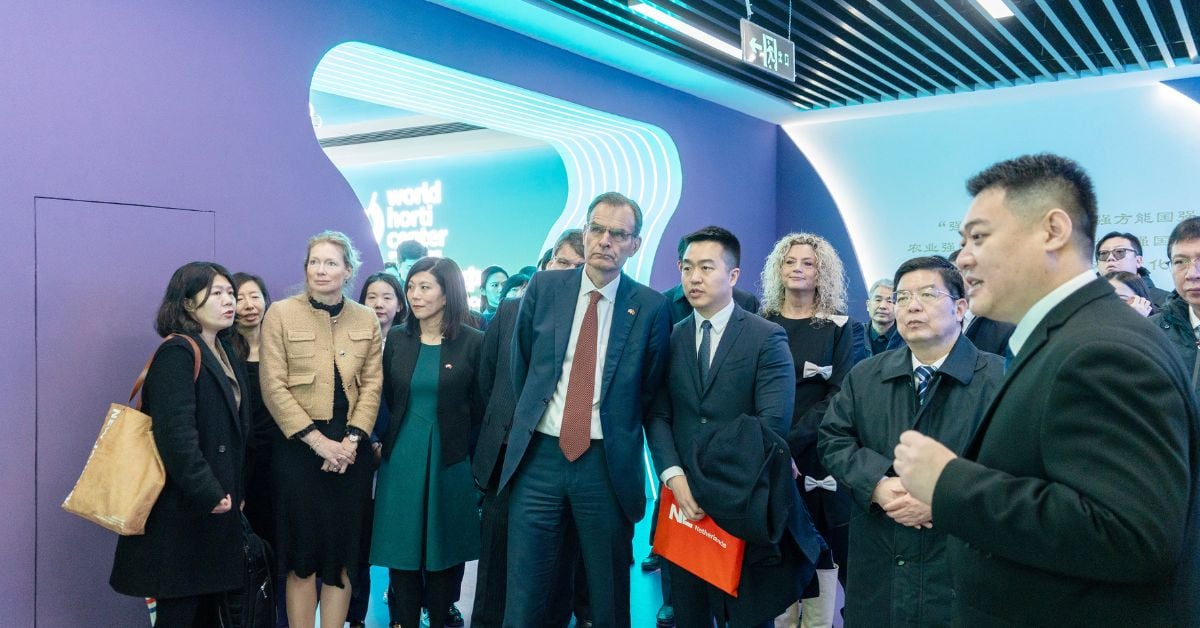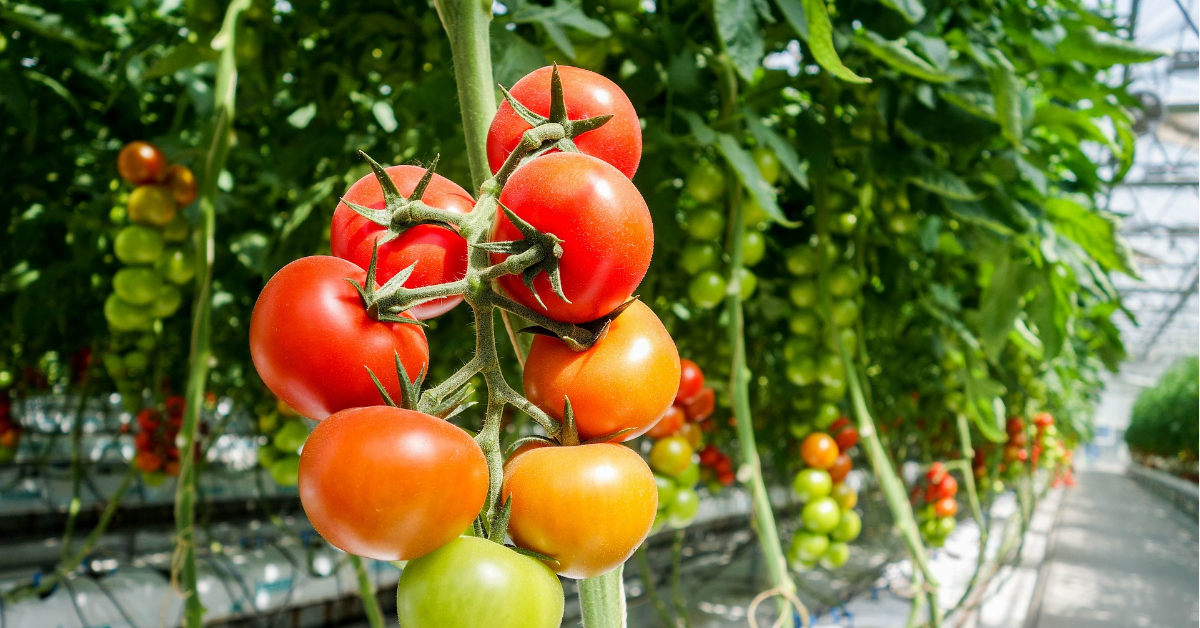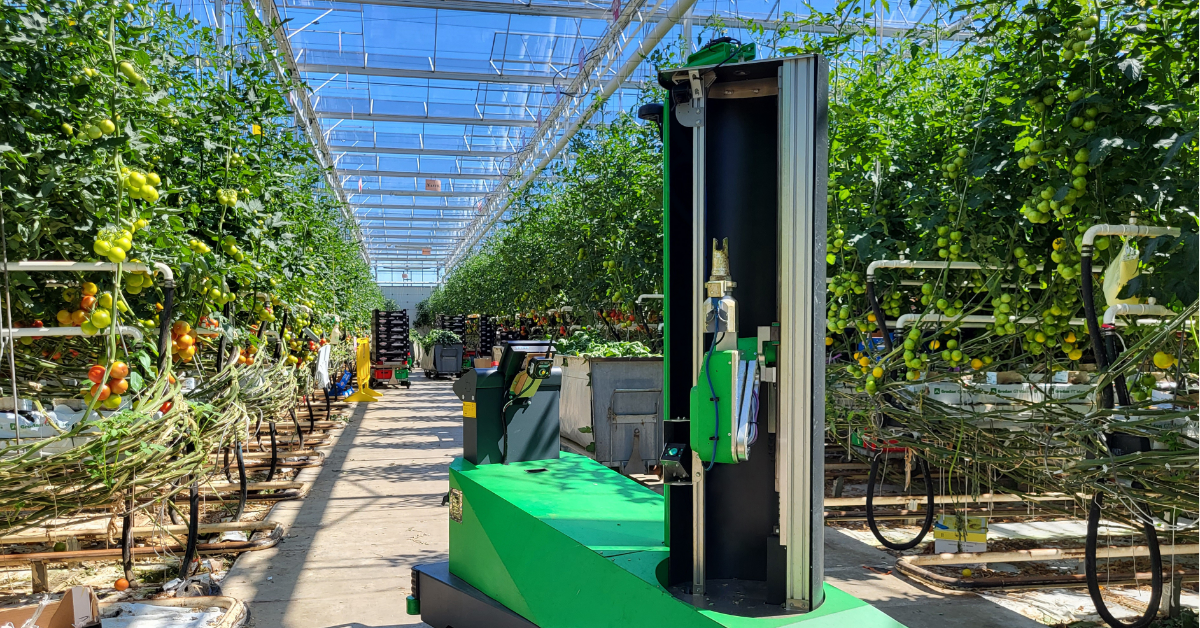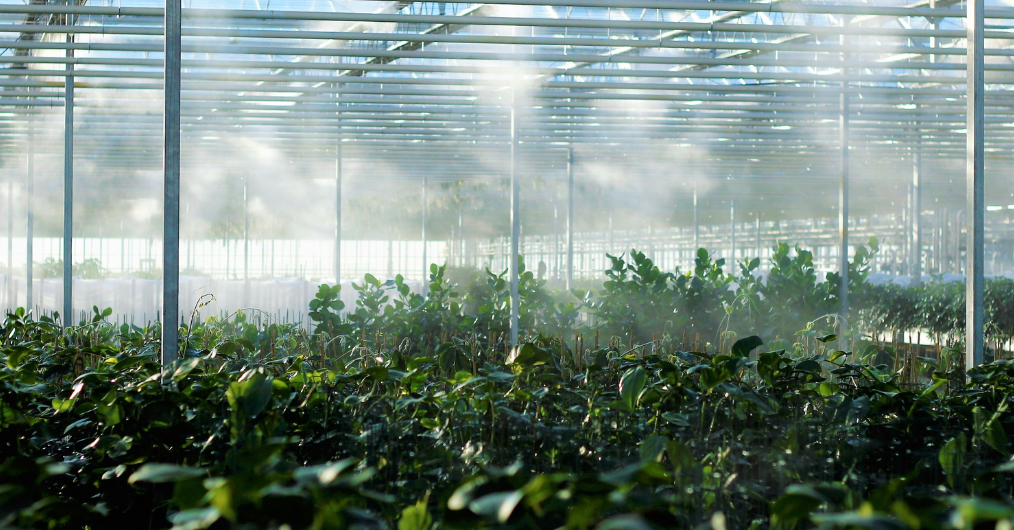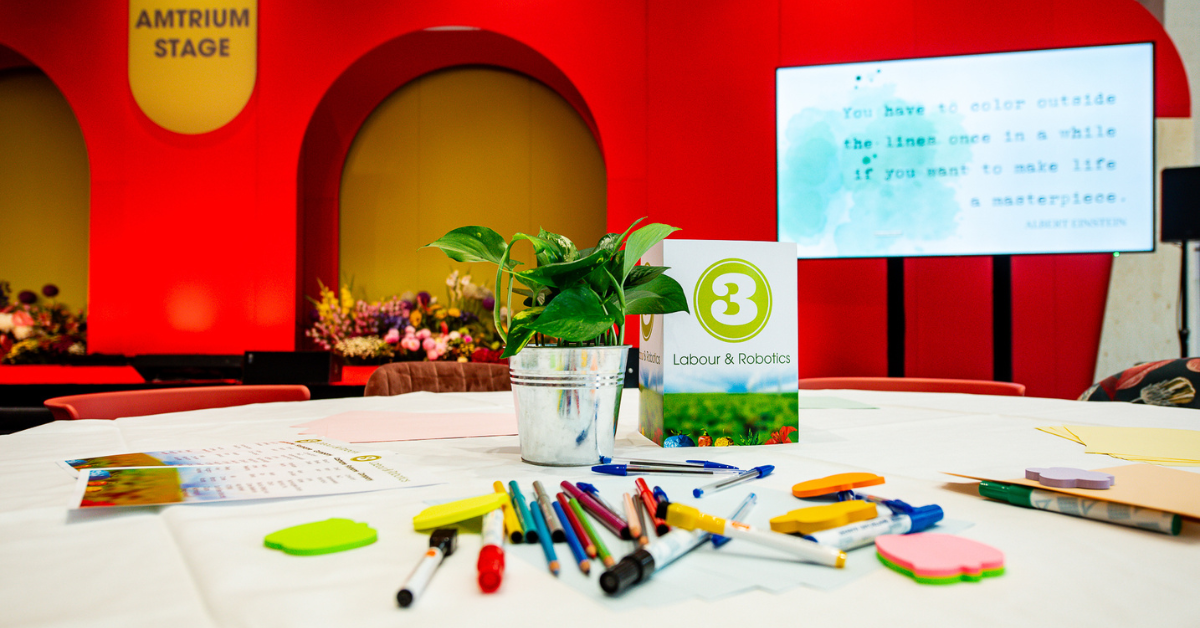A closer look at promising horticultural regions
 Author: Jacco Strating
Author: Jacco StratingThere are numerous horticultural regions worldwide that are in full development and therefore offer opportunities for technical suppliers and investors. For example, North Africa and the Gulf region. We spoke with two people about the opportunities and challenges in these areas.
Michiel Wisse, Van der Hoeven Horticultural Projects:‘Great need for knowledge and technical solutions for optimization of food production’
Van der Hoeven Horticultural Projects has been active in the Gulf region for decades. “We realize high-tech greenhouse horticulture projects there,” says Michiel Wisse. He is sales manager for Africa and the Gulf region within the Dutch company. “We handle projects from beginning until the end. From consultancy and advice to realization and assistance with the start-up of the technology and cultivation. In addition, our subsidiary Patron Agri Systems focuses on the construction of water technical and electrical installations for construction companies or end customers.”.
According to Wisse, high-tech greenhouse horticulture is on the rise in the Gulf region, but low-tech and mid-tech greenhouses still dominate the area. “There is growth in all these segments. This is partly because the corona pandemic and the situation in Ukraine have increased the importance of year-round food security; the Gulf States consider it important to be able to provide for their own food needs. Governments and investors are particularly committed to the realization of high-tech greenhouses since production in such an environment requires less water. Year-round availability of product can also be guaranteed.”
Need for knowledge
According to the sales manager, a lot of tomatoes are grown in the Gulf region, but other crops - including soft fruit - are on the rise. However, producing food in this area poses very specific challenges. “The warm and humid climate is the biggest challenge here. Reuse and efficient use of water are also crucial, as the Gulf States have a structural shortage of this.”
Wisse notices that local entrepreneurs and parties in the Gulf have a great need for knowledge and solutions for the questions and challenges that arise locally. “Certainly, because the market here is still developing. This, in combination with the challenges that are characteristic of this region, means that the Gulf region offers plenty of opportunities, especially for suppliers and parties that can offer turnkey solutions.”
Investments in automated irrigation systems
Wisse also sees plenty of opportunities in North Africa. “The horticulture in this area mainly consists of low-tech and mid-tech greenhouses, high-tech horticulture is still in its infancy. Although it is gradually gaining a foothold.” Nevertheless, there is also a need for technical solutions in this region, especially in the field of water management and electricity supply. “There is also a structural shortage of water in North Africa. Cultivation is often done here with, for example, minimal control options in terms of climate and/or irrigation. Many companies are now investing in irrigation systems or climate computers, for example, to take their cultivation to a higher level. In short: there is a great need for knowledge and technical solutions to expand and optimize local food production.”
Farid Lekjaa, Agadir Horticultural Complex:
Morocco offers plenty of potential for foreign suppliers and investors
Morocco has a huge agricultural sector. And also, the horticultural sector is of serious importance, says Farid Lekjaa. He is director of the Agadir Horticultural Complex, part of the Hassan II Agronomic and Veterinary Institute in Agadir. “The agricultural sector, along with fisheries and forestry, accounts for more than 14 percent of Morocco's gross domestic product,” Lekjaa says. “In total, 270,000 hectares in our country are reserved for the cultivation of fruit and vegetables, the annual production amounts to 7 million tons. The so-called 'early season crops' are the most important pillar of this sector. Tomatoes, bell peppers, egg plants, zucchini and cucumbers are important crops in this regard.”
Morocco annually exports 580,000 tons of greenhouse products. Tomato is by far the most important: this product accounts for almost 60 percent of exports. “Morocco is the fourth largest exporter of tomatoes worldwide. More than 60 percent of the exported Moroccan tomatoes goes to the EU. The favorable climate and the short distance to Europe make us an ideal trading partner for the EU”, says Lekjaa.
Big steps to take
According to Lekjaa, the aforementioned 'early season crops' are mainly produced in plastic greenhouses. Here - depending on the strategy and the level of knowledge of the grower - cultivation is done in or out of the ground. “The use of climate computers, sensors, screens, and other modern technologies is limited. There are therefore still significant steps to be taken. Also in terms of improving water availability, increasing production and making cultivation more sustainable. The use of water, fertilizers, energy, and crop protection products can and must be reduced significantly.”
According to Lekjaa, there is already close cooperation with Dutch parties to make this move. “As Agadir Horticultural Complex, we will soon open the Moroccan-Dutch Horticultural Center of Excellence. This center, in which various Dutch parties are involved, focuses on scientific research in combination with technological innovation. This with the aim of raising Moroccan horticulture to a higher level and meeting today's challenges.”
Government subsidies
The Moroccan government also wants to stimulate production levels, quality, and innovation within the horticultural sector. For this, among other things, subsidies are available, says Lekjaa. “This can also be very interesting for technical suppliers and investors,” he emphasizes. “We really need knowledge and techniques in Morocco that will help us achieve the stated goals. In addition, as mentioned, a sustainability move must be made. Foreign suppliers and investors can also play a role in this.”
In addition to the great need for knowledge and modern technology, Morocco is also interesting for foreign suppliers and investors for other reasons, according to Lekjaa. “Labour costs are relatively low, there is a strategic location between Europe and Africa, the population is young and relatively well-educated and Morocco is a politically stable country. In short: Morocco offers plenty of potential.”
